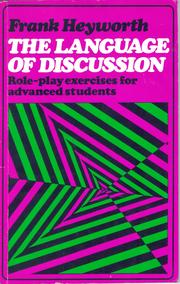| Listing 1 - 10 of 629 | << page >> |
Sort by
|
Book
Year: 1950 Publisher: New York: Harper,
Abstract | Keywords | Export | Availability | Bookmark
 Loading...
Loading...Choose an application
- Reference Manager
- EndNote
- RefWorks (Direct export to RefWorks)
Book
Abstract | Keywords | Export | Availability | Bookmark
 Loading...
Loading...Choose an application
- Reference Manager
- EndNote
- RefWorks (Direct export to RefWorks)
Book
Year: 2010 Publisher: Washington, D.C. : International Monetary Fund,
Abstract | Keywords | Export | Availability | Bookmark
 Loading...
Loading...Choose an application
- Reference Manager
- EndNote
- RefWorks (Direct export to RefWorks)
The modern history of the international monetary system (IMS) starts with the shift from a bimetallic system to the Gold Standard in the 1870s and 1880s. Under the Gold Standard, the major national currencies were freely convertible to gold at a fixed exchange rate, with adjustment largely undertaken through flexible prices, wages and income. This system survived up to the outbreak of the First World War, and while it was subsequently re-established in a modified form following a painful period of post-war disinflation, the economic and political strains of the Great Depression led to the system's ultimate collapse in the 1930s. Negotiations between the U.K. and U.S. in the 1940s led to the post war emergence of the Bretton Woods system of fixed and adjustable exchange rates tied to the dollar, with the dollar fixed to gold and the IMF established to oversee the system. However, this system too faced repeated strains, and with the dollar's link to gold broken and most major currencies floating in the early 1970s, the current arrangements centered on floating currencies were born. The U.S. dollar remained the key reserve currency in the new system, with U.S. Treasury Bills the major reserve asset.
Book
ISBN: 1498378129 Year: 2010 Publisher: Washington, D.C. : International Monetary Fund,
Abstract | Keywords | Export | Availability | Bookmark
 Loading...
Loading...Choose an application
- Reference Manager
- EndNote
- RefWorks (Direct export to RefWorks)
The modern history of the international monetary system (IMS) starts with the shift from a bimetallic system to the Gold Standard in the 1870s and 1880s. Under the Gold Standard, the major national currencies were freely convertible to gold at a fixed exchange rate, with adjustment largely undertaken through flexible prices, wages and income. This system survived up to the outbreak of the First World War, and while it was subsequently re-established in a modified form following a painful period of post-war disinflation, the economic and political strains of the Great Depression led to the system's ultimate collapse in the 1930s. Negotiations between the U.K. and U.S. in the 1940s led to the post war emergence of the Bretton Woods system of fixed and adjustable exchange rates tied to the dollar, with the dollar fixed to gold and the IMF established to oversee the system. However, this system too faced repeated strains, and with the dollar's link to gold broken and most major currencies floating in the early 1970s, the current arrangements centered on floating currencies were born. The U.S. dollar remained the key reserve currency in the new system, with U.S. Treasury Bills the major reserve asset.
Book
Year: 1968 Publisher: New York [etc.] Holt, Rinehart and Winston
Abstract | Keywords | Export | Availability | Bookmark
 Loading...
Loading...Choose an application
- Reference Manager
- EndNote
- RefWorks (Direct export to RefWorks)
Book
Year: 1950 Publisher: New York Toronto Rinehart
Abstract | Keywords | Export | Availability | Bookmark
 Loading...
Loading...Choose an application
- Reference Manager
- EndNote
- RefWorks (Direct export to RefWorks)

ISBN: 9780226869063 Year: 2007 Publisher: Chicago London University of Chicago Press
Abstract | Keywords | Export | Availability | Bookmark
 Loading...
Loading...Choose an application
- Reference Manager
- EndNote
- RefWorks (Direct export to RefWorks)
Book
ISBN: 9780674050877 Year: 2010 Publisher: Cambridge Harvard University Press
Abstract | Keywords | Export | Availability | Bookmark
 Loading...
Loading...Choose an application
- Reference Manager
- EndNote
- RefWorks (Direct export to RefWorks)
Prominent observers complain that public discourse in America is shallow and unedifying -- This debased conditions often attributed to, among other things, the resurgence of religion in public life. Steven D. Smith argues that this diagnosis has the matter backwards: it is not primarily religion but rather the strictures of secular rationalism that have drained our modern discourse of force and authenticity. Thus Rawlsian "public reason" filters appeals to religion or "other comprehensive doctrines" out of public deliberation. But these restrictions have the effect of excluding our deepest normative commitments, virtually assuring that the discourse will be shallow. Furthermore, because we cannot defend our normative positions without resorting to convictions that secular discourse deems inadmissible, we are frequently forced to smuggle in those convictions under the guise of benign notions such as freedom and equality. Smith suggests that this sort of smuggling is pervasive in modern secular discourse. He shows this by considering a series of controversial, contemporary issues, including the Supreme Court's assisted-suicide decisions, the "harm principle," separation of church and state, and freedom of conscience. He concludes by suggesting that it is possible and desirable to free public discourse of the constraints associated with secularism and "public reason."
Discussion --- Secularism
Book
Year: 1949 Publisher: [New York] Harper
Abstract | Keywords | Export | Availability | Bookmark
 Loading...
Loading...Choose an application
- Reference Manager
- EndNote
- RefWorks (Direct export to RefWorks)
Discussion --- Leadership

ISBN: 0340227745 9780340227749 Year: 1978 Publisher: London: Hodder and Stoughton,
Abstract | Keywords | Export | Availability | Bookmark
 Loading...
Loading...Choose an application
- Reference Manager
- EndNote
- RefWorks (Direct export to RefWorks)
| Listing 1 - 10 of 629 | << page >> |
Sort by
|

 Search
Search Feedback
Feedback About UniCat
About UniCat  Help
Help News
News